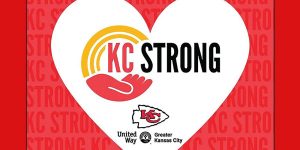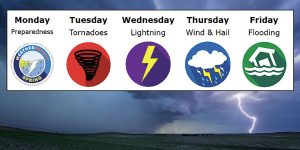
Las mujeres y el parque Washington Square tienen una larga historia juntos.
Tal vez desconocida para las miles de personas que se reunieron en el parque el 21 de enero para la Marcha de la Mujer, en Kansas City, Mo., parque que adquirió su nombre durante la década de 1920 por recomendación de las mujeres que eran miembros de Chapter of the Daughters de la Revolución Americana de Kansas City, de acuerdo a la historia oficial de Kansas City Parks & Recreation.
En un sábado parcialmente soleado, las mujeres y el parque continuaron su historia junto con una versión local de la marcha nacional de Washington, D.C. y de alrededor del mundo para protestar contra el presidente Trump y abogar por los derechos de las mujeres. De acuerdo a la estimación publicada en la página de Facebook de Darryl Forte, jefe de la policía de Kansas City, había más de 5,000 asistentes.
Los participantes llevaban carteles con frases, usaron sombreros rosas y se reunieron en el parque de 5 acres para escuchar discursos sobre diversos temas, incluyendo los derechos de las mujeres, la inmigración y los derechos de los discapacitados. José A. Torres habló sobre inmigración.
“Soy un inmigrante estadounidense de primera generación de México”, indicó Torres a los oradores, seguido de aplausos y ovaciones de la multitud. “Lo digo hoy, como individuo, que necesitamos detener la ideología de nosotros-contra-ellos entre las culturas”.
Kansas City era una de muchas ciudades que realizó la marcha. Nueva Delhi, India, París, Londres e inclusive la Antártida sirvieron como anfitriones internacionales. Bostón, Chicago, Dallas, Denver, Anchorage, Alaska, Seattle y la ciudad de Nueva York se encontraban entre las otras ciudades anfitrionas de los Estados Unidos. De acuerdo con The New York Times, el triple de personas asistieron a la marcha en Washington que las que asistieron a la inauguración de Trump el 20 de enero.
De regreso a Kansas City, hubo algunas voces inconformes en medio de lo que de lo que era una marcha que apoyaba una perspectiva política liberal. María y Ruth Engling dos hermanas, estaban tranquilamente sosteniendo letreros pro-vida.
“Creemos que la vida humana es algo por lo que vale la pena asistir y hablar”, indicó Ruth Engling. “Incluso si vamos a obtener comentarios negativos, es valioso para nosotros.”
“Hemos tenido algunas discusiones interesantes”, indicó Maria Engling. “Algunos no muy agradables. Hemos recibido algunos sermones.”
Ray Velázquez fue uno de los muchos hombres que asistieron.
“Me encantó. Me duele la cara de la alegría. Sonreí tan fuerte”, indicó Velázquez. “Vine con ira y ansiedad de ayer. Creo que hoy, esa ira estaba bien dirigida y mi ansiedad disminuyó.”
____________________________________________________________________________________________________
KC Women’s March draws thousands
By Nicholas Peterson, Photos by Cesar Chiu and Nicholas Peterson
Women and Washington Square Park have a long history together.
Perhaps unbeknown to the thousands of people who poured into the park on Jan. 21 for the Women’s March, the Kansas City, Mo., park acquired its name during the 1920s from the recommendation of women. They were members of the Kansas City Chapter of the Daughters of the American Revolution, according to Kansas City Parks & Recreation’s official history.
On a partly sunny Saturday, women and the park continued their history together with a local version of the national march in Washington, D.C., and around the world to protest against President Trump and advocate for women’s rights. There were more than 5,000 attendees, according to the estimate posted on Kansas City Police Chief Darryl Forte’s Facebook page.
Participants carried signs with slogans, donned pink hats and huddled into the 5-acre park to listen to speeches on various topics, including women’s rights, immigration and disability rights. Jose A. Torres spoke about immigration.
“I’m a first-generation U.S. citizen-immigrant from Mexico,” Torres said over the speakers, followed by applause and cheers from the crowd. “I say today, as an individual, that we need to stop the we-vs.-them ideology across cultures.”
Kansas City was one of many cities to host the march. New Delhi, India; Paris; London; and even Antarctica served as international hosts. Boston; Chicago; Dallas; Denver; Anchorage, Alaska; Seattle; and New York City were among the other hosting U.S. cities. According to The New York Times, three times as many people attended the march in Washington than had attended Trump’s inauguration on Jan. 20.
Back in Kansas City, there were a few dissenting voices amid what was otherwise a march supporting a liberal political perspective. Two sisters, Maria and Ruth Engling, stood calmly holding text-only pro-life signs.
“We believe that human life is something that it’s worth coming out and speaking about,” Ruth Engling said. “Even if we’re going to get negative feedback, it’s that valuable to us.”
“We’ve had some interesting discussions,” Maria Engling said. “Some not very pleasant. We’ve gotten some lectures.”
Ray Velazquez was one of many men who attended.
“I loved it. My face aches with joy. I smiled so hard,” Velazquez said. “I came with anger and anxiety from yesterday. And today, that anger was well-directed, I think, and my anxiety diminished.”









